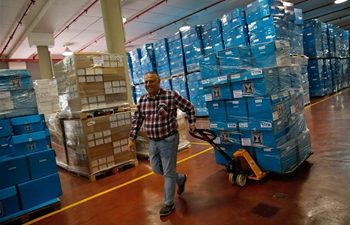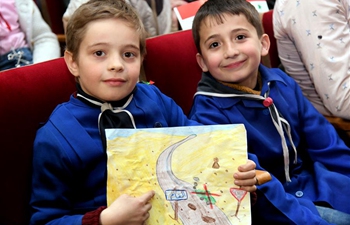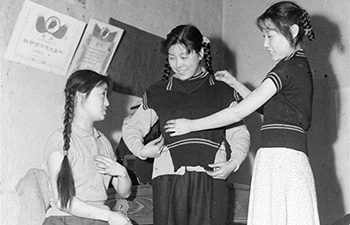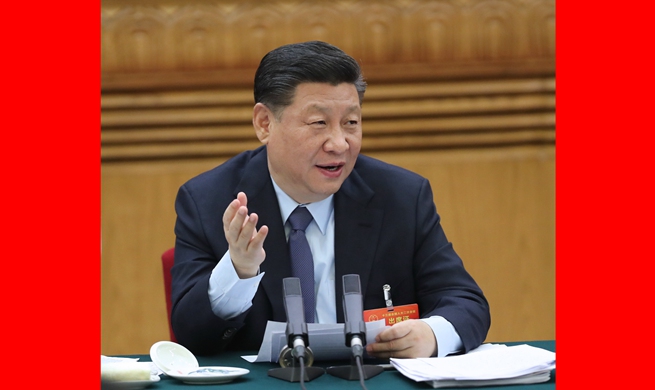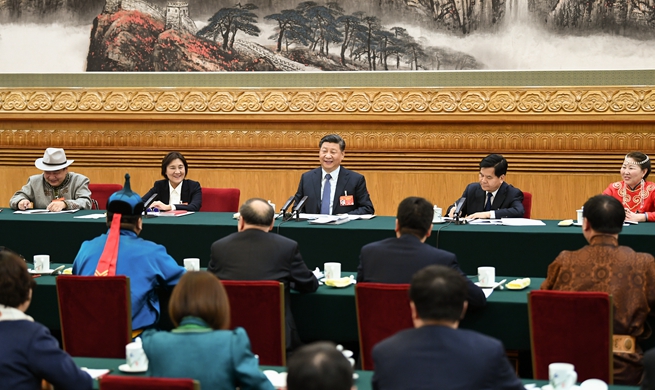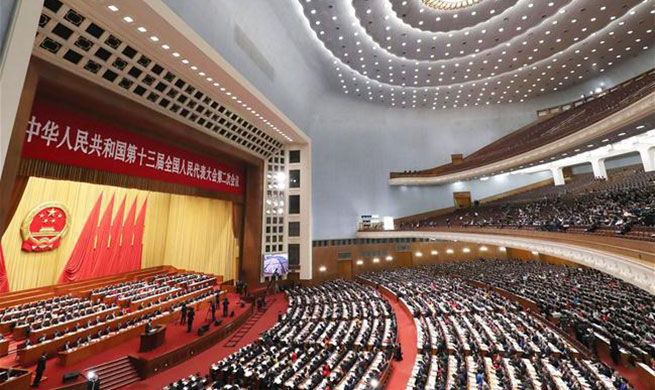ZHENGZHOU, March 8 (Xinhua) -- After on-site visits and repeated comparison, Tang Zhijing, a 33-year-old breastfeeding mom, chose a shopping mall five km away from her home, instead of a closer one, to enjoy weekends with her two kids there.
The farther shopping mall, established in 2017 in Zhengzhou, capital of central China's Henan Province, has a mother-and-baby room.
"I don't want to experience the embarrassment of breastfeeding or changing diapers awkwardly in corners anymore," Tang said. "Those experiences undignified me as a mother."
Latest data from a report released by the China Development Research Foundation showed that the rate of exclusive breastfeeding in six months in China increased to 29.2 percent. The number was only 20.8 percent in 2013, according to the Chinese Center for Disease Control and Prevention.
"Though still low, the rate is slightly rising compared with previous years. It may be related to the more friendly social atmosphere," said Lyu Xiaohua, a deputy to the People's Congress of Zhengzhou.
The babycare room of about 20 square meters Tang prefers is equipped with basic facilities such as diaper-changing tables, a sofa, a water dispenser, wash basins and even a playpen in which kids can play safely.
The innermost area of the room is divided into five 1-square-meter compartments for breastfeeding, with a curtain hanging over each door to protect the mothers' privacy.
"This is a very important reason why I decided to give birth to a second child and insisted on breastfeeding. We now have a more friendly social environment," said Tang.
Breastfeeding is considered more conducive to infants than formula feeding. The World Health Organization recommends that children should be exclusively breastfed for the first six months.
However, in China, the rate of that target is far below the world average of 43 percent. In addition to mothers' feeding beliefs, the situation is partly caused by the lack of babycare rooms in public areas.
In 2016, the second year after the one-child policy was abolished, China's health authorities released a guideline that required airports and railway stations in provincial capitals have babycare rooms by the end of that year, and standard facilities should be set up in public spaces and some companies by 2020.
"Besides the government, our society should support breastfeeding by creating a friendly social environment," said Zhang Mingsuo, a professor at Zhengzhou University. He believes the attitudes towards mothers and infants are also an important yardstick for social civilization.
In Zhengzhou, with a population of 10 million, babycare rooms are now a required facility for shopping malls built in recent years. A state-owned 7-floor shopping mall in Zhengzhou, for example, has 12 babycare rooms.
"Babycare rooms attract more customers to the mall," a staff member of the mall said.
In recent years, many provinces, including Henan, Liaoning and Guangdong, unveiled plans to promote the construction of mother/infant-friendly facilities. Guangzhou, capital of Guangdong Province, for instance, opened 658 babycare rooms last year. As of November 2018, the number of babycare rooms in Beijing's public areas reached close to 400, covering all the airports and main railway stations. Mothers can even find a babycare room using mobile apps.
"Overall, the situation is getting better," said Lyu.






